Alabama Senate approves bill blocking removal of old monuments, statues

The Alabama Senate approved a bill Thursday that would block attempts to change or remove statues, memorials and monuments that are over 20 years old. The bill, sponsored by Tuscaloosa Republican Sen. Gerald Allen, has been the subject of controversy since it protects monuments with ties to the Confederate States of America. “The goal of this bill is to protect all periods of Alabama’s history for our children and grandchildren to learn from,” said Allen. “Too often, in convulsions of political correctness, a local official will hastily rip down a monument or a statue because it offends the sensibilities of someone, somewhere.” Allen and other proponents of the bill argue that it preserves state history, while critics point say such monuments are offensive due to their connection to slavery. “History isn’t always pleasant and our forbearers have not always acted with honor. But healing in the present is not found by erasing the past,” he said. “Only if our past is understood and remembered may we be inspired by its examples of heroism, and yes, sobered by its episodes of oppression. This proposal prevents the hasty and thoughtless destruction of historical markers so that we and our descendants may continue to learn from the past, in order to create a better future.” Allen has sponsored similar bills the past two sessions after Gov. Robert Bentley removed Confederate flags from the state Capitol. Previous versions of the bill would protect monuments that were at least 50 years old. Allen said he has discussed the proposition with other lawmakers over the past year and that the 2017 version of his bill “reflects their input.” With the Senate’s approval, the bill now moves on to the House.
Bill to eliminate marriage licenses passes Alabama Senate, moves to House

Marriage licenses may soon be a thing of the past in Alabama. Rather than getting a marriage license signed by a probate judge, Range-Republican state Sen. Greg Albritton has introduced a bill that would require couples to file a form and have a notarized affidavit with the probate judge in order to record their marriages. Senate Bill 20 was approved, 22-6, Tuesday night the Alabama Senate. It’s passage comes as few probate judges across the state continue to refuse to issue marriage licenses to same-sex couples. “This bill would specify that the judge of probate would have no authority to reject any recording of a marriage, so long as the affidavits, forms, and data are provided,” Albritton’s bill reads. “This bill would provide that a religious, civil, or independent ceremony of marriage, or other officiation, or administration of marital vows may be conducted or engaged in by the parties. Instead of issuing marriage licenses, probate judges would be required to collect the following minimum information: (1) The full legal names of both of the parties. (2) A notarized affidavit from each party declaring all of the following: a. The affiant is not currently married. b. The affiant is at least 18 years of age; or 21 2. The affiant is at least 16 and under 18 years of 22 age and has the consent of a parent or guardian. c. The affiant is legally competent to enter into a marriage. d. The parties are not related by blood or adoption such that the marriage would violate Section 13A-13-3, Code of 27 Alabama 1975. e. The affiant is entering into the marriage voluntarily and of his or her own free will and not under duress or undue influence SB20 now moves to the Alabama House of Representatives for consideration. Similar legislation failed to win final approval in the past two legislative sessions.
Controversial monument preservation bill delayed in Alabama Senate
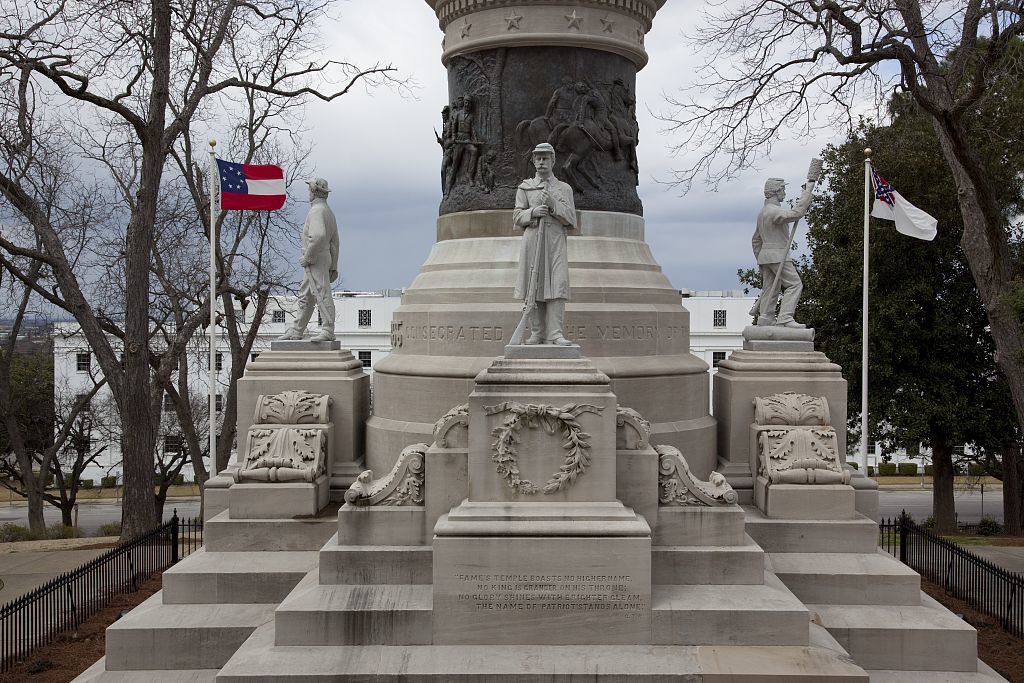
The Alabama Senate has delayed a vote on a bill that would prohibit the relocation, removal, alteration, renaming, or other disturbance of monuments located on public property. On Thursday, senators said they needed more time to review SB60: the Alabama Memorial Preservation Act of 2017, given the ongoing regional debate over the appropriateness of monuments, street names and buildings with visible links to slavery. Introduced by Sen. Gerald Allen, the bill would apply only to monuments that are more than 50 years old. “I am concerned about politically-correct efforts to erase entire portions of American history, and oftentimes these efforts to remove a statue or a monument are done in haste and without public knowledge,” Allen said in a news release. “I believe our children and grandchildren should remember history as it happened – the good and the bad.” Allen introduced a similar bill in 2015 — after Gov. Robert Bentley removed Confederate flags from the state Capitol grounds following backlash over the flag’s symbolism after the horrific shootings in a South Carolina church — but it failed to gain enough support in the Alabama House of Representatives to make it to a vote before the end of session.
What will the Alabama Legislature tackle in the final three days of special session?
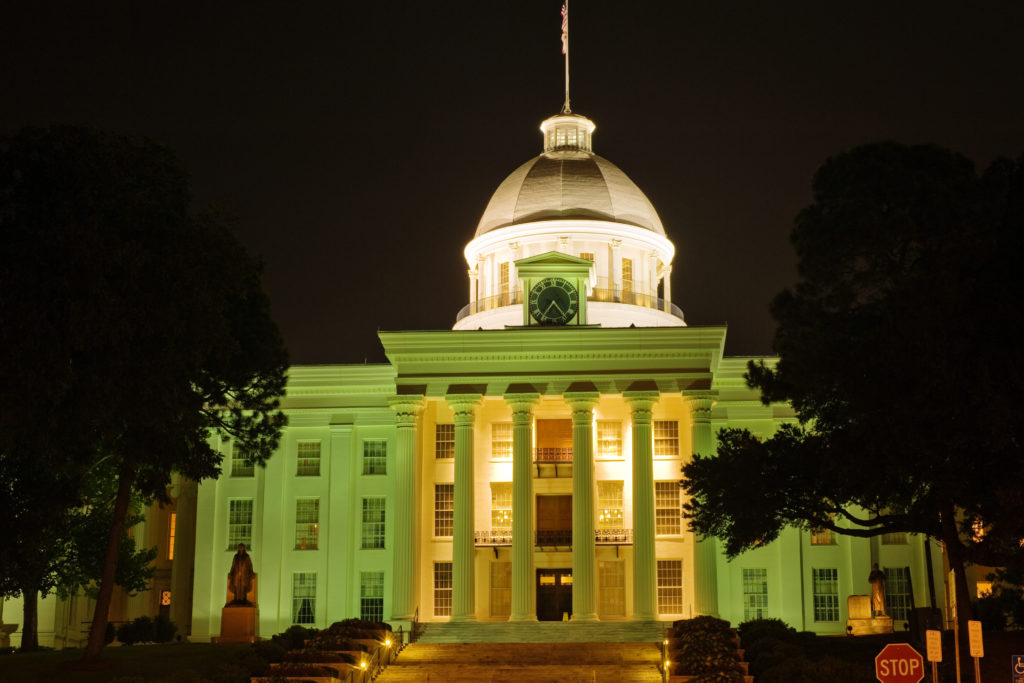
After an 11th-hour Hail Mary attempt to save it, Gov. Robert Bentley‘s proposed state lottery failed in the Alabama Senate Friday night. Bentley called the special session in July and tasked lawmakers solely with considering a state lottery. After a week of back-and-forth on various bills, Senators voted 23-7 to reject changes the Alabama House of Representatives made to the bill. The bill’s sponsor, Sen. Jim McClendon, on Friday proclaimed the legislation is “dead” for the special session. “It’s over,” he said. In the wake of the lottery bill’s failure, both chambers adjourned until Sept. 6. Meanwhile, Alabama Medicaid continues to face an $85 million shortfall in funding — an issue expected to be fixed with the BP settlement bill. In the first week of special session, the House of Representatives cleared a major hurdle in approving a bill to use the state’s settlement funds from the 2010 Deepwater Horizon BP oil spill in the Gulf of Mexico to pay debts and build roads in south Alabama. Lawmakers approved the bill 88-10. Whether or not that bill will clear the Senate remains to be seen. When the special session resumes after Labor Day, lawmakers will only have three days to land on a solution to a lottery and the issue of what to do with BP settlement funds. Bentley has not ruled out the possibility of another special session to bring the lottery back up as a permanent fix.
Alabama House passes 11th-hour Medicaid funding patch in BP settlement compromise

A deal providing $70 million in additional funding from the BP settlement to Medicaid was struck Thursday night in the Alabama House, providing a one-time patch to the ailing health care program on the last possible day to come to a compromise during the 2016 Regular Session. Passing the House 82-12, the band-aid measure will come from the more than $1 billion in settlement funds from the 2010 Deepwater Horizon BP oil spill. The settlement isn’t paid in a lump sum, but is spread out over the next 17 years. But the Medicaid patch is not the only part of the grand compromise. Under the agreement, a $600 million bond would be taken out against the promise of the settlement, and used to pay back $448 million in debt obligations and $191 million in infrastructure funding to Mobile and Baldwin Counties, in addition to the funds going to Medicaid. The $70 million Medicaid money is still $15 short of what the agency requested, and has detractors on both sides of the issue. Ed Henry, Republican of Hartselle and other legislators and interested parties are concerned this amounts to kicking the can down the road once again. “What I do hate is the idea of spending one-time money on Medicaid,” said Henry. The Senate left their record open to receive messages from the House, ensuring the compromise can be taken up by the upper body in the last two days of the Regular Session. Both the House and Senate are adjourned until Tuesday. They are expected to reconvene Tuesday, and conclude the year’s session Wednesday.
Alabama House committee passes weakened payday lending reform

The House Financial Services Committee voted Wednesday to approve a version of the payday lending reform bill already passed by the Alabama Senate, but neither side of the debate is particularly happy with the outcome. Weaker than the original legislation, the substitute bill offered during the committee meeting Wednesday restricts payday lenders to making loans at 15 percent for minimum terms of 28 days, which cuts the APR of such loans significantly, but not as much as reformers had hoped. The move is seen as a compromise, and the original bill’s sponsor Danny Garrett, a Republican of Trussville, said it means “[w]e’re moving to the point where we’ll have reform this year.” Besides the increase in the amount of interest allowed, one of the biggest issues reformers have with the new bill is the maintenance of the inability to pay off the loans in installments, one of the features they say keep low-income borrowers trapped in a cycle of debt. In a public hearing on the previous Wednesday, a member of the payday lending industry said the original bill would be an “extinction event” for the entire sector. Blake calls payday loan bill a “global extinction event” for payday lenders. #alpolitics — Tim Lockette (@TLockette_Star) April 20, 2016 A database created by the Alabama Department of Banking found Alabamians took out 462,209 loans over a 10-week period. A total of $146 million was borrowed, or an average of about $14 million each week. A coalition of activists from across the state have fought for years to bring reform to the table. The Alliance for Responsible Lending in Alabama (ARLA) has members from the Arise Citizens’ Policy Project, Alabama Appleseed, the Alabama State Conference of the NAACP, the Alabama Citizens’ Action Program, the Southern Poverty Law Center, and the Federation of Republican Women. While opponents of reform say such loans are sometimes necessary to help low-income families through tough times, ARLA policy analyst Stephen Stetson wrote in an op-ed last month that what can appear to be a helping hand for those in need can be an “anchor” holding them in a cycle of poverty. “We all want a world where people can get the kinds of credit they need. But that requires putting some brakes on a system that all too often acts as an engine for poverty, handing out extremely high-cost loans to desperate folks who may treat them as a lifeline. Too often, those ‘lifelines’ instead end up as anchors, dragging people into financial quicksand.” But regardless of the compromise, the changes made to the bill may mean reform is dead in the water this year, as it will have to be re-passed by the Senate, and this time under the body’s unanimous consent rules, with just a few days left in the Regular Session.
Alabama legislative preview: April 19 – April 22, 2016
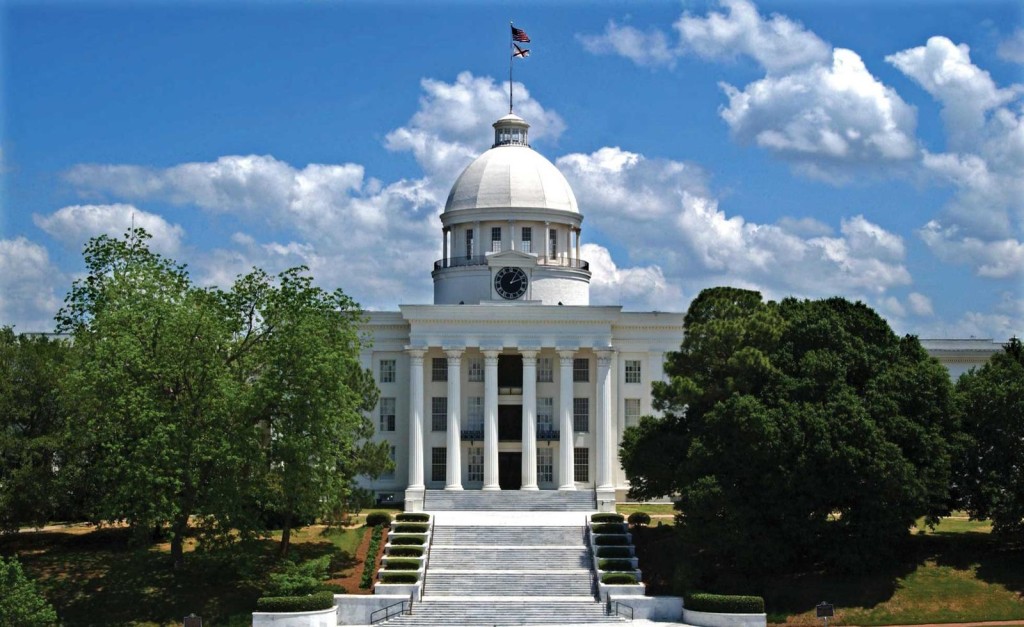
As the clock begins to wind down on the Alabama Legislature’s 2016 Regular Session, the heat will begin to build under legislators and special interests looking to pass their legislative priorities in the remaining eight working days available to lawmakers. Here’s your weekly sneak peek at some of the most important legislation that will be considered in the Alabama House and Senate. House — Convenes Tuesday at 1:30PM Education Trust Fund: Both houses of the Alabama Legislature have passed their own versions of the year’s education budget, but the differences send the legislation to a conference committee before final passage can be decided. Among the most controversial sections of the Senate-passed bill is the inclusion of an amendment that would only allow teachers who obtain higher degrees to earn raises if their advanced degree is in an “area of need.” The Senate bill also includes the first pay raise for teachers since 2008. On Wednesday the House Ways and Means Committee will consider SB287 authorizing the Alabama Corrections Institution Finance Authority to issue up to $800 million in bonds to construct and renovated the state’s overcrowded prisons. Senate — Convenes Tuesday at 2:00PM SB186 “The Voting Rights Restoration Act” would amend the process under which convicted felons can have their ability to vote restored, expediting the process, as well as requiring state and county prisons, jails, and correctional facilities to post information about how felons can apply. Sponsored by Sen. Linda Coleman-Madison (D-Birmingham) SB78 Increases the number of years qualifying rural physicians can receive a $5,000 income tax credit from 5 to 10 years, and adds dentists practicing in rural areas to those eligible for it. Sen. Gerald Dial (R-Lineville) SB304 Would allow Alabama Sheriffs to issue and renew the concealed weapons permits of any eligible Alabamian, regardless of county. Currently Sheriffs may only issue permits to those who reside in their county. Sponsored by Sen. Jabo Wagonner (R-Vestavia Hills) SB360 Would close Alabama’s primaries, requiring people to register with their party of choice at least 14 days before the primary vote is held. Such a measure has been particularly popular in a year where first-time and crossover voters have arguably decided primary elections in several states. Sponsored by Sen. Tom Whatley (R-Opelika) SB372 Creates a new provision in Alabama’s controversial “chemical endangerment of a child” law, allowing the consumption of controlled substances under the “good faith” supervision of a physician. The chemical endangerment law came under fire last fall after a searing investigation by AL.com and ProPublica. Sponsored by Sen. Clyde Chambliss (R-Montgomery) The House and Senate general fund budget committees have scheduled a joint meeting Wednesday to discuss the Medicaid shortfall.
Alabama Senate passes education budget, teacher pay raise

The Alabama Senate passed Wednesday evening the Education Trust Fund budget, funding education in the state, as well as the first pay raise for teachers in several years. In the largest education budget from the state since 2008’s financial crash which sent the state’s budgets careening, the $6.3 billion expenditure funds everything from K-12 public classrooms to the implementation of new educational technology. Senate President Pro Tem Del Marsh commended Sen. Arthur Orr (R-Decatur), the bill’s sponsor in the Senate, for his work in shepherding the legislation through the upper house, but said the state still has a long way to go in improving education. “Alabama is still 46th and 50th in reading and math, respectively, and only 16% of our high school graduates are college ready according to American College Testing (ACT),” Marsh said in a press release. “Education affects every part of this state and I cannot look of these numbers and accept the status quo. I am still committed to reforming our education system until there is noticeable improvement and all children are able to receive a high quality education. I look forward to working with those in the education community who share my concerns on new and innovative reforms for next year,” said Marsh. A separate bill will give 4 percent pay increases to teachers, educational staff, and administrators making less than $75,000 annually, as well as a 4 percent raise to all principals and assistant principals, and a 2 percent raise to other teachers and staff making above that amount. “They have not received a true pay raise since 2008,” said Orr. “Here we are looking at the 2017 budget. In education and most businesses, you have to attract good people, and the way to attract good people is how you compensate them. We need to compensate people in education accordingly to get the best that we can.” Though the original bill has already passed the House, it will likely be sent to a conference committee to reconcile small changes made during passage in the Senate.
State Senate OKs payday lending reform bill

The Alabama Senate passed a bill Wednesday to extend the timeframe for repaying loans from so-called “payday” lenders to six months. Pressure to quickly repay payday loans – often at interest rates of 20 percent or higher, compounded over time – is a serious financial problem for many low-income Alabamians. Republican Sen. Bill Orr — who is sponsoring SB 91 — says he wants to make the state’s payday loan regime less “punitive.” Current law allows lenders to charge interest rates of 456 percent per year. Orr’s bill caps maximum annual interest at 180 percent. Democrats and advocates on behalf of low-income workers have long criticized the payday loan industry, but support for reform among Republicans is something relatively novel. According to the Montgomery-based Arise Citizens’ Policy Project, high payday loans rates not only hurt poor borrowers, but the economy at large. “Every dollar spent repaying payday loan interest takes nearly $2 out of the overall economy through reduced consumer spending and increased bankruptcies, according to a recent study by the Insight Center for Community Economic Development. The study calculated that payday lending cost Alabama $47 million – and 697 jobs – in 2011,” reads a policy memo in support of Orr’s bill. The legislation won approval by a 28-1 vote, and now moves to the House. If the bill meets with their approval, it would move on to the desk of Gov. Robert Bentley for his signature, assuming he isn’t impeached. The Colorado state Legislature passed similar legislation in 2010. A study by the Pew Charitable Trusts found that the number of payday stores in Colorado shrunk by half after the change. Information from the Associated Press was used in this report.
Lawmakers vote to override Robert Bentley veto, enact General Fund budget
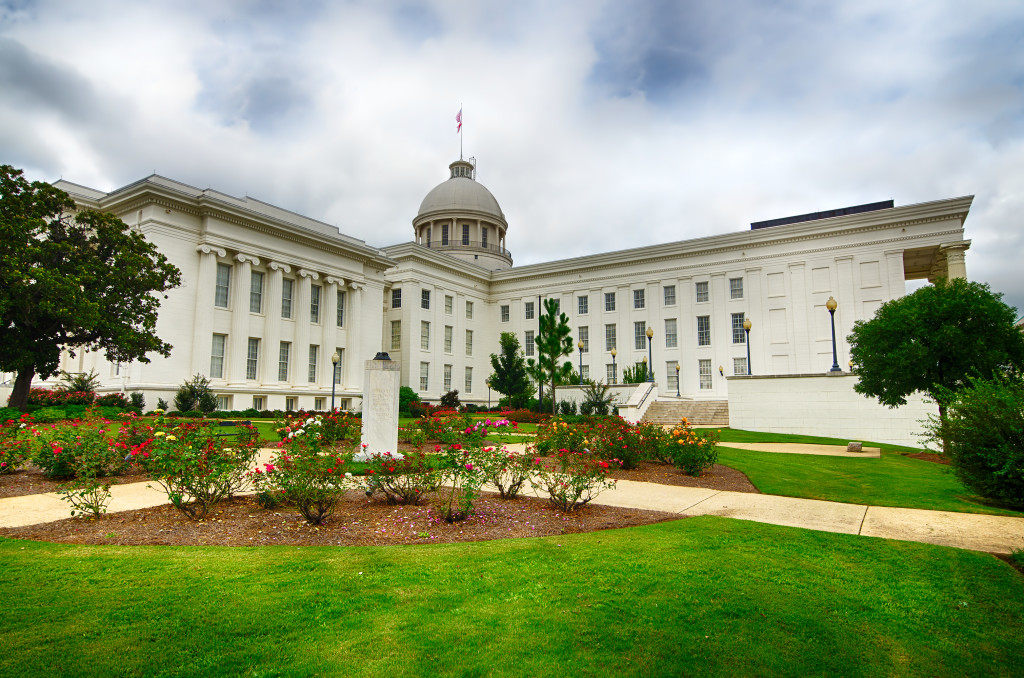
Rebuking Gov. Robert Bentley‘s veto for the first time in 2016, Alabama lawmakers voted Tuesday to enact the General Fund budget the governor previously rejected over Medicaid funding. Bentley vetoed the budget last month for being $85 million short of the money needed to maintain services and reimbursement rates in the state’s Medicaid program, warning lawmakers the state would not be able to provide basic medical services to children and the elderly without the additional funding. “As one of the lowest state-funded Medicaid agencies in the country, the Alabama Medicaid Agency focuses services to those most in needed: our low-income children, pregnant women, elderly and people with disabilities,” Bentley wrote in his veto message to lawmakers. “Without additional resources, we simply cannot fulfill our constitutionally and statutorily mandated duties.” Lawmakers ignored Bentley’s strong words overriding his gubernatorial veto with a majority vote — the Senate, 22-10, followed by the House, 71-24. Bentley, however, wasn’t the only one with harsh criticism over the approved budget. Kimble Forrister, executive director of Arise Citizens’ Policy Project – a nonprofit advocacy group for low-income Alabamians – said General Fund budget would force “devastating Medicaid cuts that could force many hospitals to close and lead many pediatricians to leave the state.” “We can’t build a stronger Alabama by taking a sledgehammer to the foundation of our state’s health care system. But that’s just what this inadequate General Fund budget would do,” said Forrister in a statement after Tuesday’s override votes. Bentley has hinted he may call lawmakers back for a special session to tackle the Medicaid shortfall.
Here’s what would happen should Robert Bentley be impeached
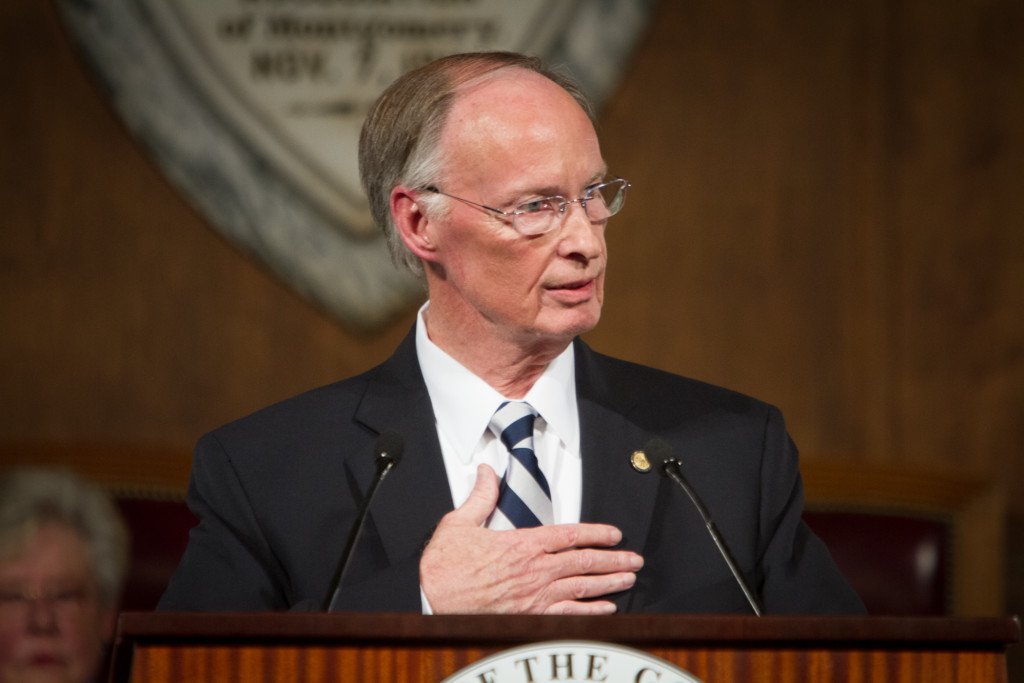
The impeachment process is seldom used in Alabama politics. Reserving its use for only the most egregious of moral or legal transgressions, the power of impeachment is protected from being diluted to a political tool. But with Alabama Gov. Robert Bentley‘s recent admission of impropriety and insistence he will not step down, lawmakers may soon consider using their constitutional tool of impeachment to oust the second-term Republican. How would it go down? The Alabama Constitution lays out the reasons justifying an officer of the state’s impeachment in Section 173: The governor … may be removed from office for willful neglect of duty, corruption in office, incompetency, or intemperance in the use of intoxicating liquors or narcotics to such an extent, in view of the dignity of the office and importance of its duties, as unfits the officer for the discharge of such duties, or for any offense involving moral turpitude while in office, or committed under color thereof, or connected therewith, by the senate sitting as a court of impeachment, under oath or affirmation, on articles or charges preferred by the house of representatives. Most of those calling for the governor’s resignation or impeachment are doing so on the grounds of the section’s “moral turpitude” clause. Although moral turpitude has no distinct legal definition in Alabama, it is generally defined as “conduct that is considered contrary to community standards of justice, honesty or good morals.” Should legislative leadership decide to proceed with the process, a majority of the members of the Alabama House of Representatives would have to approve articles of impeachment. They would be delivered to the lieutenant governor in the Alabama Senate. The impeachment proceedings would take place in the Alabama Senate, to be presided over by the Chief Justice of the Alabama Supreme Court: in this case, Roy Moore. Legislative leadership, however, has yet to comment on whether or not it will consider such action. Who would be governor? Section 127 of the Alabama Constitution clearly lays out a line of succession should the governor be removed from office: Lieutenant Governor Kay Ivey Senate President Pro Tem Del Marsh Speaker of the House Mike Hubbard Attorney General Luther Strange State Auditor Jim Zeigler Secretary of State John Merrill State Treasurer Young Boozer Has it ever happened before? In Alabama’s nearly 200-year history, a governor has never been impeached. Gov. Guy Hunt, the first Republican governor in Alabama since Reconstruction, resigned his office upon being convicted of felonious ethics law violations in 1996, but was not impeached. Where does the legislature go from here? The Alabama Legislature left early for spring break Wednesday, and will resume the second half of the regular session April 5. During the intervening week and a half legislative leadership will likely consider whether or not to pull the trigger on such an unprecedented action. During an already tumultuous legislative session, with Speaker Hubbard facing charges of ethics violations himself, it remains to be seen what long-term consequences of the governor’s actions will be.
NRA urges Alabamians to call legislators in support of gun bills

Two bills currently under consideration by the Alabama Legislature are receiving special attention from the National Rifle Association’s political action arm, the NRA Institute for Legislative Action (NRA-ILA). The pro-gun group is urging its Alabama members to contact their state representatives and senators in support of the bills over the next week and a half during the legislature’s spring break. The first of the bills, SB 14 sponsored by Sen. Gerald Allen, would allow Alabamians without certain criminal records to carry pistols, “without a license on property under his or 14 her control, in his or her vehicle, in his or her 15 place of abode, in his or her fixed place of 16 business, and on the property of another or a 17 vehicle owned by another, with consent.” While Alabama is a so-called “Open Carry” state, meaning citizens over the age of 18 may legally carry a holstered firearm unconcealed without a permit, under current law a gun is considered concealed as soon as an open carrier steps into his or her vehicle, requiring a permit issued by their county’s sheriff. The NRA-ILA and other proponents of the bill argue current law constitutes an undue burden on the Second Amendment rights of Alabamians. The most vocal opponents of the bill thus far have been from the sheriffs themselves, who argue that allowing those without permits to carry weapons in their vehicles would put their deputies in danger. “The only thing we’re saying is every time we turn around an officer is being killed just because he’s wearing a badge,” said Alabama Sheriffs Association executive director Bobby Timmons during a recent Senate Judiciary Committee hearing. “What is a life worth?” The bill was eventually OK’d by the committee on a 6-3 vote. The second bill, SB 304 sponsored by powerful Rules Committee chairman Sen. Jabo Wagonner, would allow Alabamians to obtain their concealed carry permit in any county in the state. Currently, although the sheriffs of each of Alabama’s 67 counties are required to remit permits to any law-abiding citizen who applies, the fees charged by their offices can vary widely. “A CWL (concealed weapons license) issued in Jefferson County ($7.50 a year) confers the exact same right across the state as a CWL issued in Baldwin County ($25.00 a year),” argued the NRA-ILA in a recent action alert. “Yet, over a 5-year period those rights cost approximately $85.00 more in Baldwin County. The permittee receives no additional benefit for this more expensive permit. As a result, the counties that charge excessive fees are simply generating revenue from a small group of law-abiding residents.” SB 304 sailed through its hearing in the committee for Governmental Affairs, earning a unanimous vote for favorable report. While the two bills may appear a sure thing, with their up swell of support from one of the nation’s most powerful political outfits and sponsorships from some of the Alabama Senate’s most senior members, similar bills have been handily defeated after outrage from the Sheriffs Association and other law enforcement groups. The legislature will reconvene on April 5.

